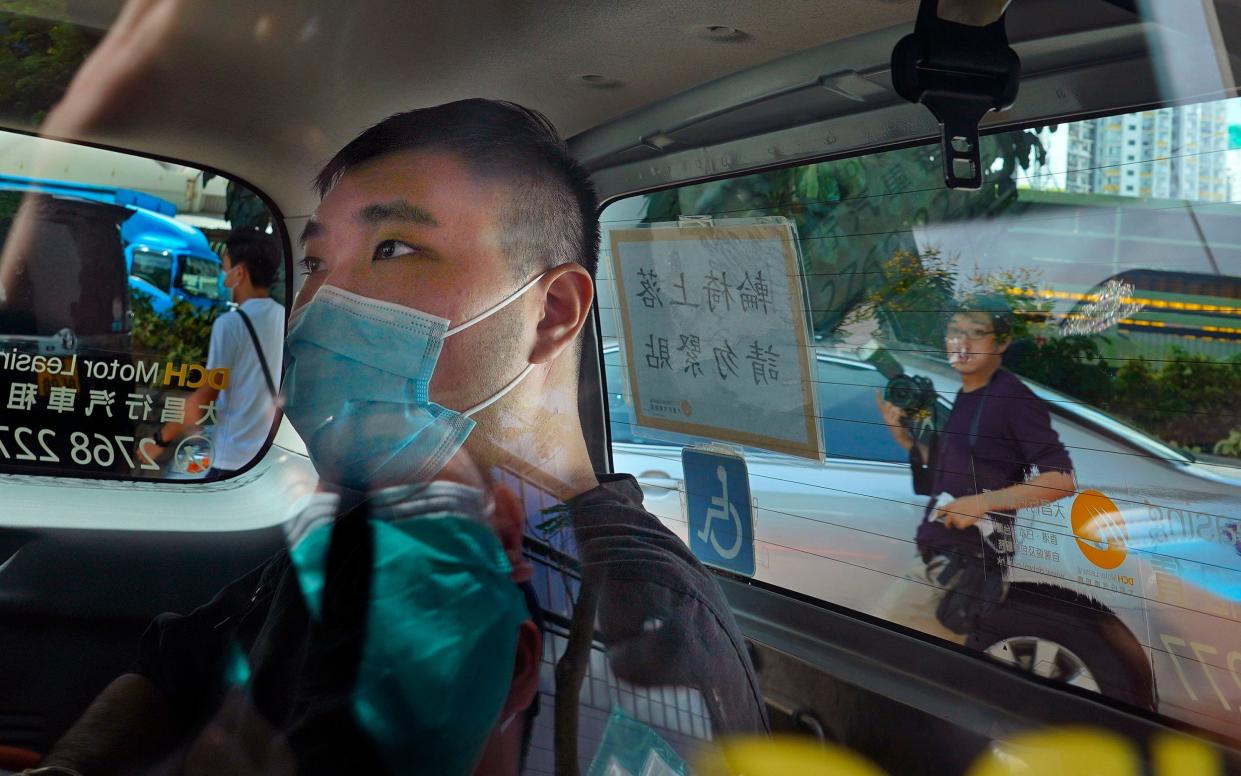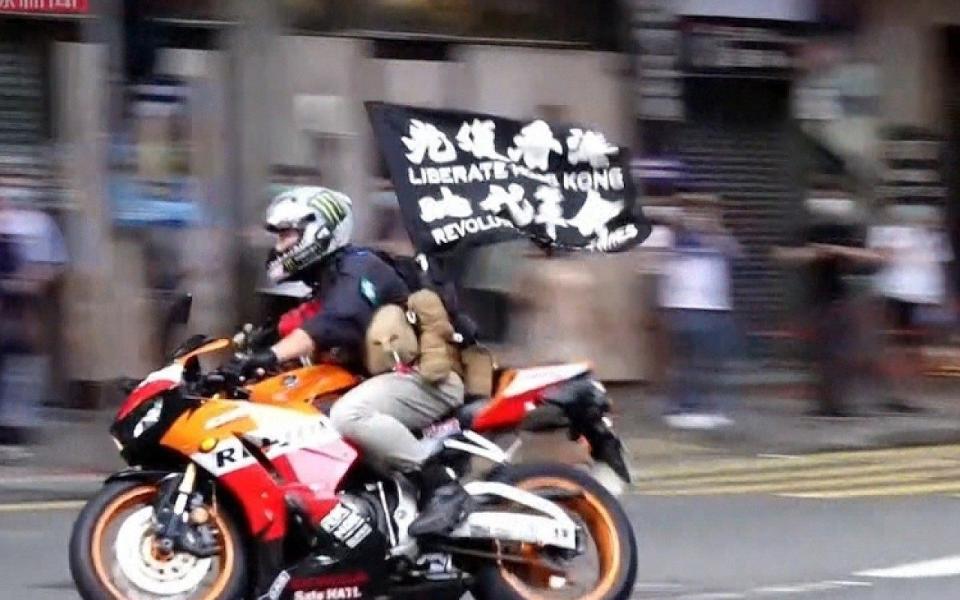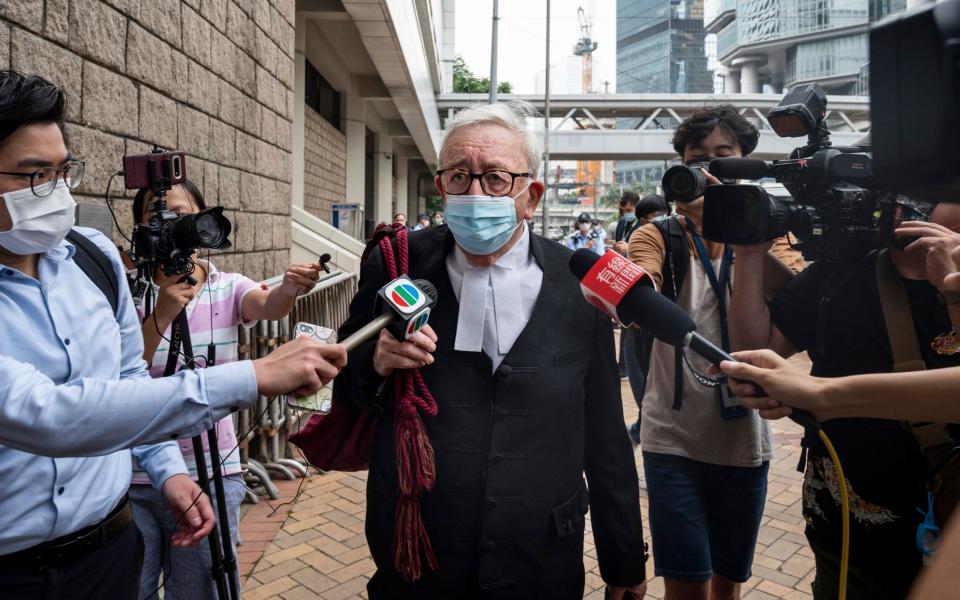Hong Kong activist faces life in jail after conviction under national security law

A Hong Kong man is facing life in jail after being convicted of terrorism and inciting secession in the first trial under a controversial new national security law imposed by China last year to stamp out dissent.
The landmark ruling also confirms that political slogans that run counter to Beijing’s views are now officially outlawed, and has been widely condemned as "the end for freedom of expression" by rights activists.
Tong Ying-kit, 24, was arrested after he rammed a motorbike into three police officers while waving a protest flag during a rally on July 1 last year, the day after the sweeping national security law came into effect.
The slogan on the flag – “Liberate Hong Kong, Revolution of Our Times” – was “capable of inciting others to commit secession,” the judges said in the verdict.
“Such acts were aimed at challenging the law and order in Hong Kong and had indeed caused grave harm to the society ... such intimidation was for the purpose of pursuing his political agenda.”
Mass arrests. Newspaper raids. Banned protests. Exiled activists. The Telegraph's new podcast, Hong Kong Silenced, documents how life in the city has been turned upside down in the past year. Listen to all episodes now on wherever you get your podcasts. telegraph.co.uk/hksilenced
Tong, who pleaded not guilty and remained calm as the verdict was announced, will be sentenced at a later date and faces up to life in prison.
His lawyers argued that the slogan itself does not call for secession and are expected to press for a lighter punishment at his sentencing hearing Thursday.
The defense also said there is no evidence that Tong committed the act deliberately, that he tried to avoid crashing into officers and that his actions couldn't be considered terrorism since there was no serious violence or harm to society.

Proceedings have been closely watched as it could set a precedent in the city, where the legal profession is finding itself increasingly coerced by China’s rulers to adapt to a communist concept of governance and justice.
Democracy activists and many Western nations say the security law is reshaping Hong Kong in China's authoritarian image. China says it was needed to restore stability after 2019's protests.
In mainland China, opaque courts answer to the Communist Party and conviction is all but guaranteed, especially in political or national security cases.
Some 68 people have been formally charged under the national security law, including some of the city's most prominent pro-democracy voices, such as Jimmy Lai, founder of the now-shuttered Apple Daily newspaper.
Many awaiting trial are pro-democracy politicians who have been accused of subversion as their political opinions don’t align with those of the ruling Chinese Communist Party.
Over 15 days, Tong’s trial was heard without a jury – a significant departure from Hong Kong’s common law tradition.
The national security law states that no jury is justified if state secrets need to be protected, foreign forces are involved or if the personal safety of jurors needs to be protected.
Instead, Tong’s case was decided by three judges hand-picked by city chief executive Carrie Lam to preside over national security cases – a move that experts have said will lead to unfair trials.
“The verdict today will be tone-setting for future prosecutions,” said Hazel, a lawyer who declined to give her full name over fear of retribution.
She worried that Hong Kong authorities would review past cases and consider bringing new charges against people who were “arrested for having stickers or banners with the banned slogan.”

“This is a political show trial,” said Nathan Law, a prominent pro-democracy activist now in exile in London.
“The judicial system in Hong Kong is weaponized to suppress. Our right to free expression is severely curtailed, and a sense of white terror continues to linger in Hong Kong.”
“Today’s verdict underlines the sobering fact that expressing certain political opinions in the city is now officially a crime,” said Yamini Mishra, Amnesty International’s Asia-Pacific regional director.
“This feels like the beginning of the end for freedom of expression in Hong Kong,” she said in a statement.
The national security law has had a significant impact on Hong Kong, prompting thousands of people to flee and seek asylum abroad. Three universities in the city have announced plans in recent days to include ‘national security’ education beginning this fall.
Last week, five people were also arrested under charges of sedition for publishing children’s books about sheep getting into scuffles with wolves – an allegory for pro-democracy protesters resisting police.

